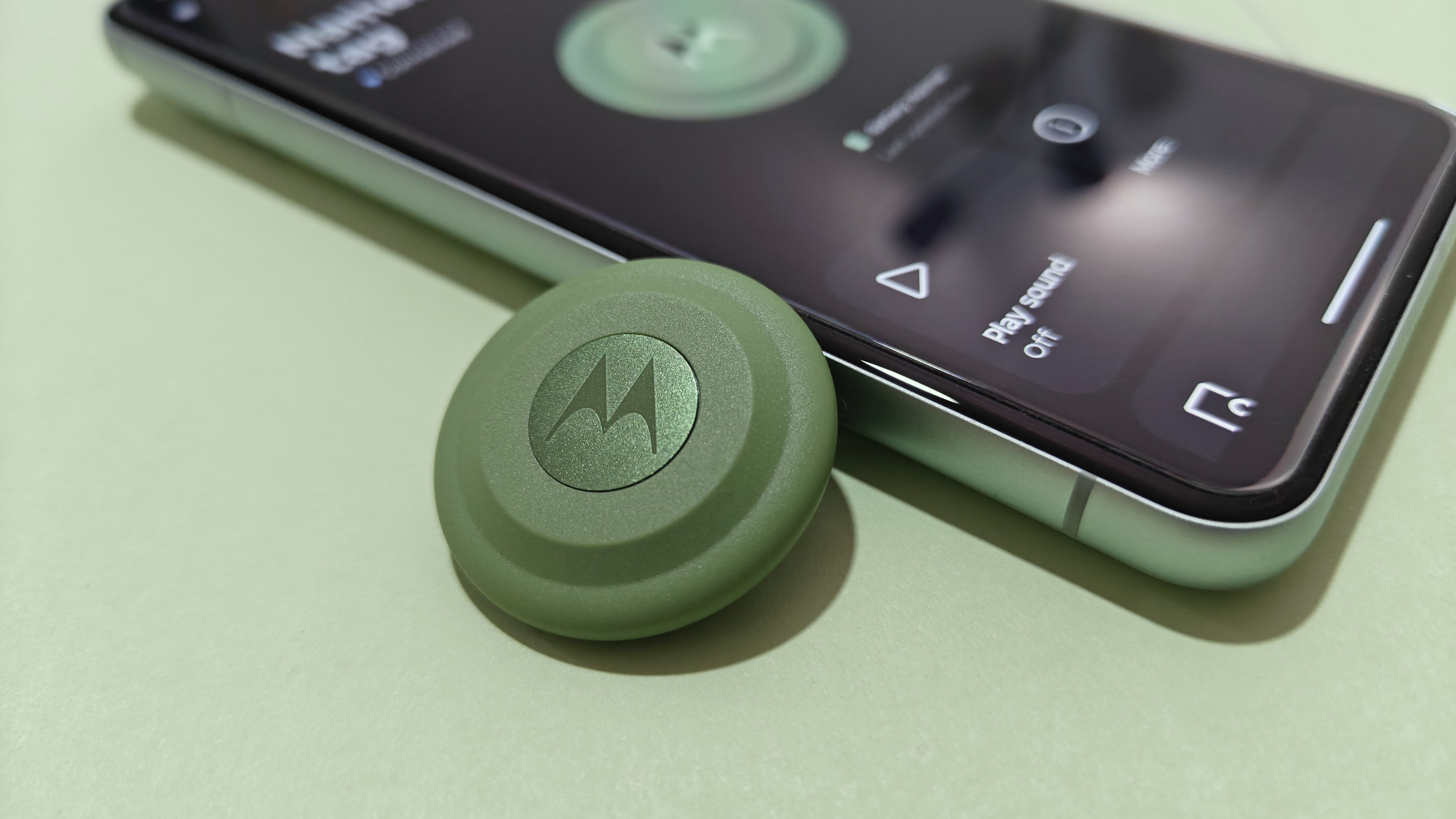Nest Wifi Router vs. Netgear Orbi Tri-Band Whole Home Mesh WiFi: Which should you buy?
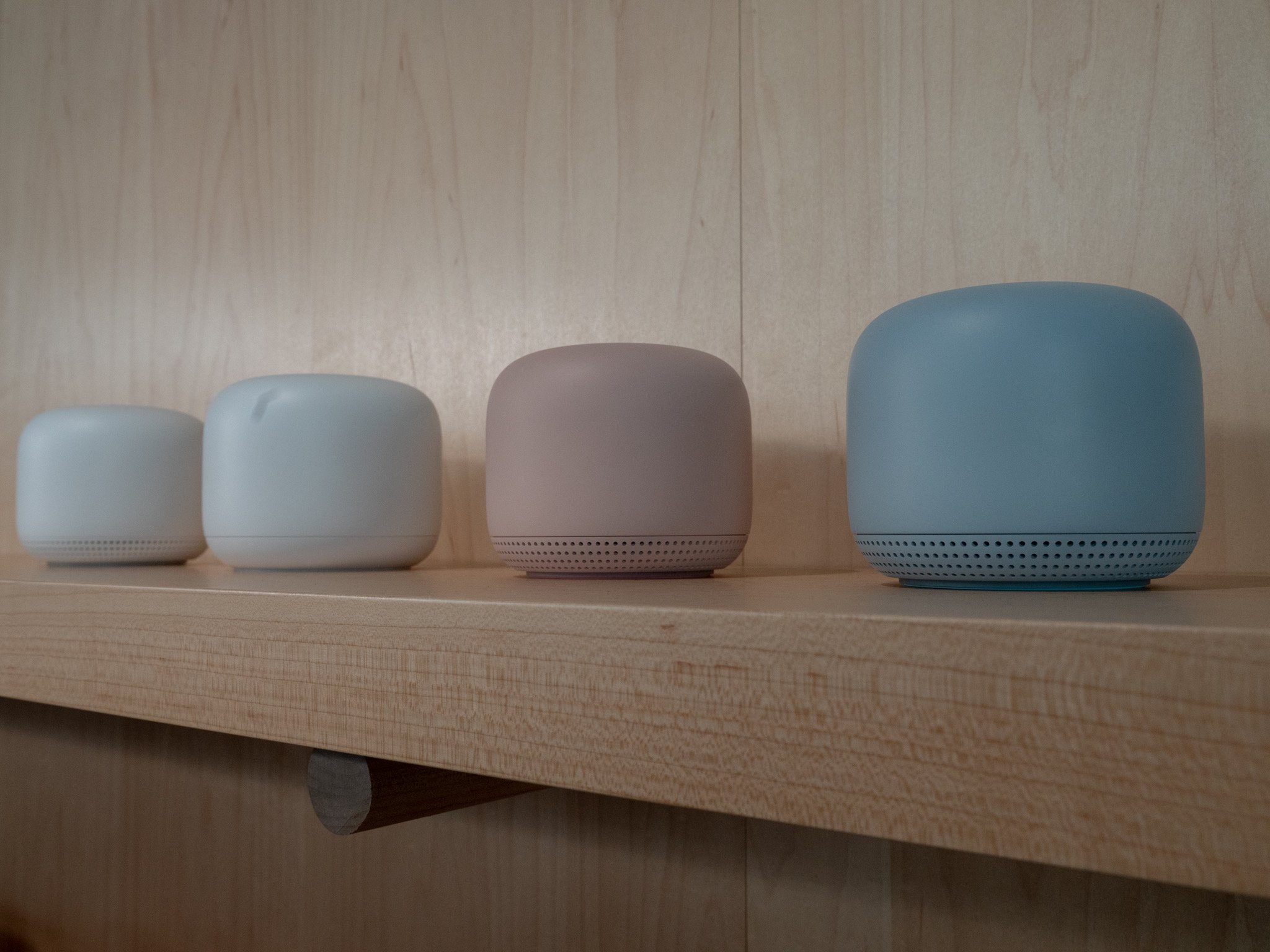
Netgear Orbi Tri-band RBK22
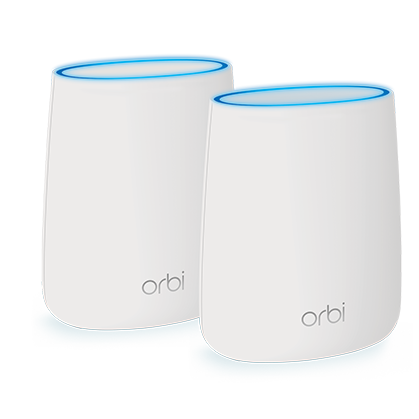
Netgear Orbi was one of the first big names in mesh Wi-Fi networking and Netgear's products still offer a great bang for your buck with high-end features. Orbi's approach to mesh with a dedicated backhaul channel is simple, but it works well. One 5Ghz channel will be used to connect the mesh points while one will remain open to wireless devices.
Netgear Orbi Tri-band RBK22
Keep it simple
Nest Wifi Router 2-Pack
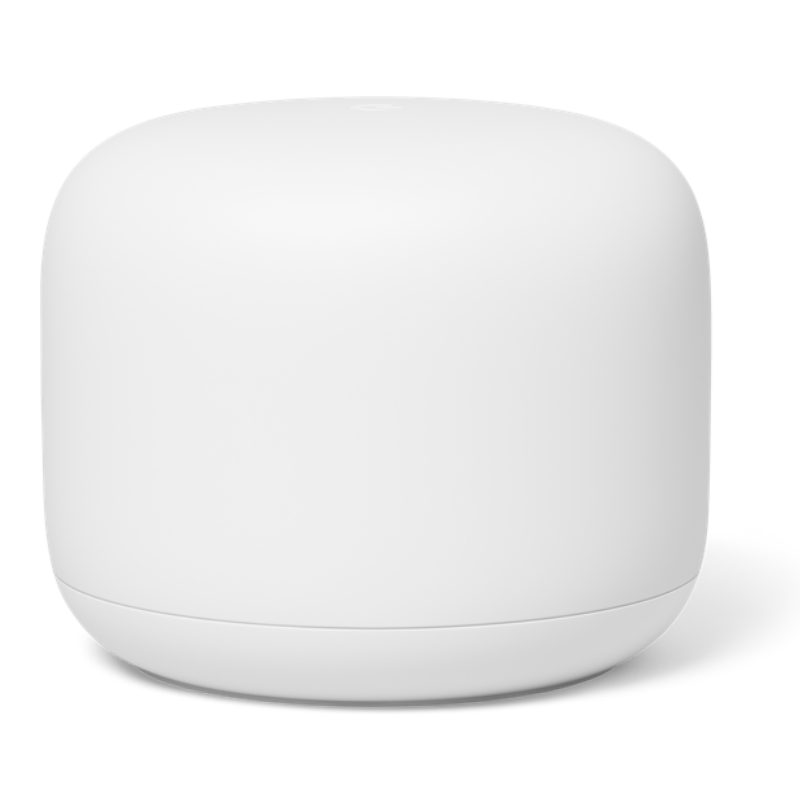
The Nest Wifi Router is a great product and works hard to earn its price premium. From a pure networking perspective, it doesn't do much more than its cheaper competitors, but additions like WPA3, consistent security updates, alongside powerful hardware help it perform well in a wide variety of situations.
Nest Wifi Router 2-Pack
Good bones
Netgear's Orbi mesh systems are well known and well regarded no matter what they're compared to. With Orbi, Netgear competes on flexibility with a wide variety of networking devices, ranging from modems and smart speakers to routers and satellites. Luckily, they all work together so there's nothing to worry about if you want to add faster Orbi equipment to an older Orbi mesh.
The Nest Wifi Router is a continuation of the Google Wifi line of mesh routers with a spec bump and an optional mesh point. All of the units are compatible so a fit for any home could be compiled. The fastest and most capable unit is the base Nest Wifi Router with the Nest Wifi Point and Google Wifi units acting as more economical expansion options.
In the details
Taking it down to the specifications, it's clear that the Nest Wifi Router is a more advanced device with faster core components and a more modern design. That doesn't make the Netgear Orbi slow by any stretch but with a slower CPU, less RAM, and an older security solution, it may not have as much room to grow with software.
| Header Cell - Column 0 | Orbi RBK22 | Nest Wifi Router |
|---|---|---|
| Wi-Fi version | 802.11AC | 802.11 AC |
| Coverage | 4,000 sq ft | 4,400 sq ft |
| Speed | AC2200 | AC2200 |
| Bands | tri-band | dual-band |
| Streams | 2x2 2.4Ghz 2x2 5Ghz (Wi-Fi devices) 2x2 5Ghz (mesh) | 2x2 2.4 Ghz 4x4 5Ghz (shared) |
| Dedicated mesh connection | yes | no |
| WPA version | WPA/PSK2 | WPA3 |
| CPU | 710Mhz quad-core | 1.4Ghz quad-core |
| RAM | 256MB | 1GB |
| Ethernet ports | 2 per unit | 2 per unit |
Both devices sport two Ethernet connections per unit capable of gigabit speeds. This may be a drag for someone with a large wired network already in place but a wired switch can be added cheaply.
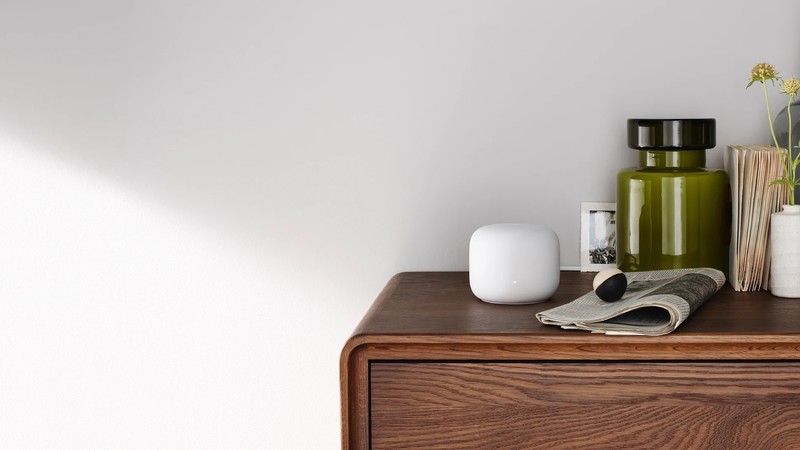
Coverage
The listed 4,000 and 4,400 square feet of coverage of the Orbi and Nest systems respectively are theoretical maximums and you won't see either of them hit that in a real house. This is due to things that can cause interference such as walls, appliances, and anything that uses electricity. Not to mention each router has to be within range of another so there will inevitably be some overlap.
Get the latest news from Android Central, your trusted companion in the world of Android
Even so, the beauty of a mesh system is that you can keep adding units to fill in weak or dead Wi-Fi spots in your home. Even challenging spots like basements or garages that can have concrete walls can have a stable connection with a little patience.
Speed
When it comes to speed, these routers achieve the same theoretical top speed at AC2200, but they get there in a slightly different ways. Since Orbi is tri-band, it has three different bands for Wi-Fi at 2x2 on 2.4Ghz, 2x2 on 5.2Ghz, and 2x2 on 5.8Ghz. That breaks down to 400Mbps, 866Mbps, and 866Mbps, respectively, with two data streams for each one.
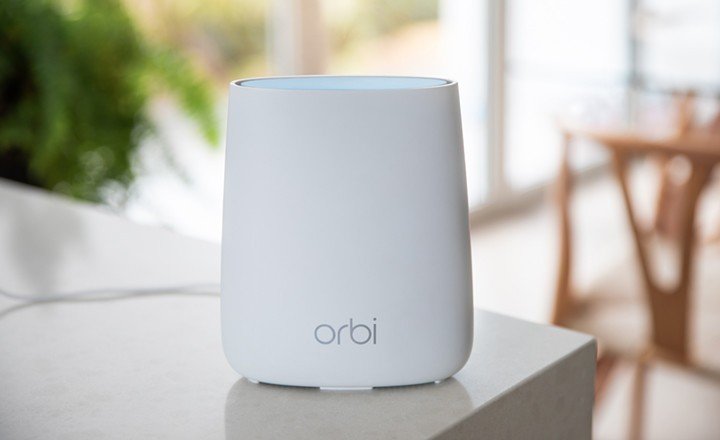
Another way to look at it is 200Mbps plus 200Mbps at 2.4Ghz and 433Mbps, plus 433Mbps on the 5Ghz channels. Don't worry about this too much. The software in the router will assign the best possible channel configurations for your devices.
The Orbi reserves the top band exclusively for communication between mesh points. So really, it will be more of a dual-band experience but your connected devices won't have to share a connection with the mesh points.
There aren't a ton of devices that can actually take advantage of tri-band Wi-Fi fully and to be frank, most people won't even be able to saturate a dual-band connection unless they have commercial fiber optic internet over 1Gbps. For the vast majority of people, the speed on both routers will be plenty.
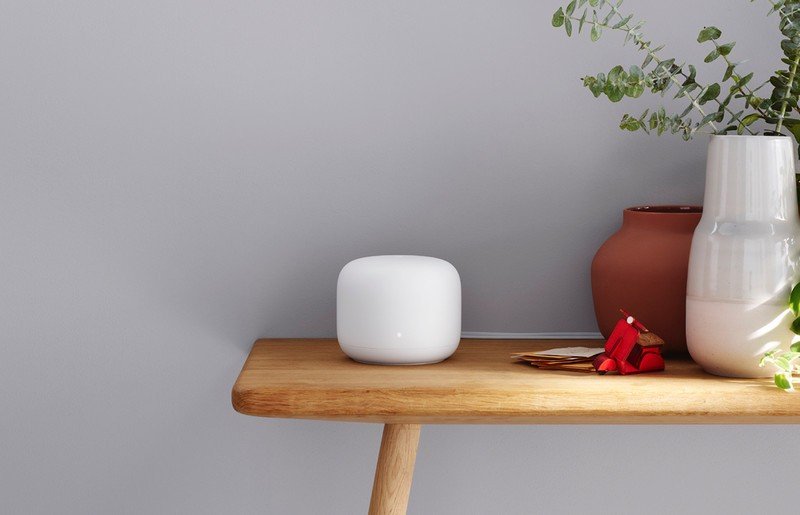
The Nest Wifi Router keeps things dual-band and arguably simpler with four data streams at 5Ghz and two at 2.4Ghz. Similar to before, we're hitting that AC2200 spec with math. The 5Ghz band is pumping out four streams at 433Mbps and the 2.4Ghz band has two streams at 200Mbps. This brings us to 2,132Mbps which marketing math brings up to AC2200.
Again, don't worry about this too much as the router will use software to determine the best use of all of these resources. Nest hasn't specifically dedicating any of the available resources to a backhaul, which will probably be absolutely adequate for any home user.
At the end of the day, the Nest Wifi Router has more speed potential per device but in the real world, you likely won't notice a difference.
Security
WPA3 is more secure and harder to crack than other types of Wi-Fi security. The main difference comes with how devices are authenticated on the network making it more difficult for a key to be misappropriated. Nest Wifi supports this standard while Orbi sticks to the older WPA/PSK2 standard. In most cases, the older standard will be more than enough but it is nice to see Google looking forward on the Nest systems.
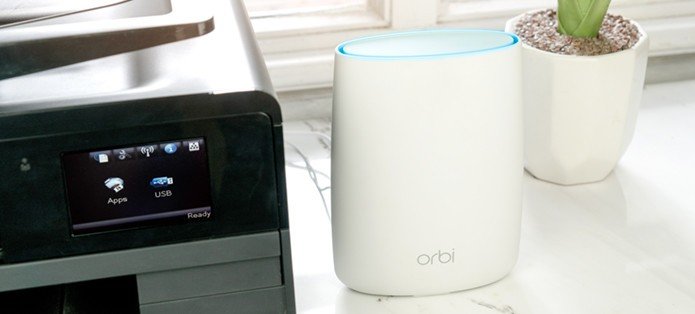
Google does collect some anonymous data about how you use your Nest Wifi system. While this shouldn't be a security or privacy concern, some people find it unsettling. Luckily, it can be disbaled in settings in the Google Home or Google Wifi app.
Expand the mesh
The entire Orbi family of routers is compatible and it's a rather big family. There are other Orbi routers and satellites available from a dual-band AC1200 system to a faster tri-band model all the way up to a very fast, though expensive, Wi-Fi 6 capable system. There's even a separate version for businesses if you need it.
No matter your Wi-Fi needs, more than likely, you can meet it with an Orbi setup.

Nest Wifi can be similarly combined with many more routers as needed but there is also a cheaper mesh point that can add another 1,600 square feet of coverage and comes in two additional colors: sand and mist. These points have a smart speaker built in as well as microphones allowing you to access Google Assistant where you have one. They also make for decent background music or podcast speakers.
The older Google Wifi routers are also compatible making it easy to upgrade an existing Google Wifi setup with Nest to cheaply add mesh coverage.
Which should you get?
If you're not sure if you need a mesh, it's worth checking out some of the best wireless routers you can buy. The Nest Wifi Router is a very capable mesh router and whoever buys it will more than likely be very happy with it. It just doesn't do enough to justify its additional cost over something like the Netgear Orbi Tri-band, which will provide most of the performance at a significantly lower cost. There's also no getting around how long Netgear has been building quality networking equipment, including the vast collection of Orbi compatible devices.

When Samuel is not writing about networking or 5G at Android Central, he spends most of his time researching computer components and obsessing over what CPU goes into the ultimate Windows 98 computer. It's the Pentium 3.
